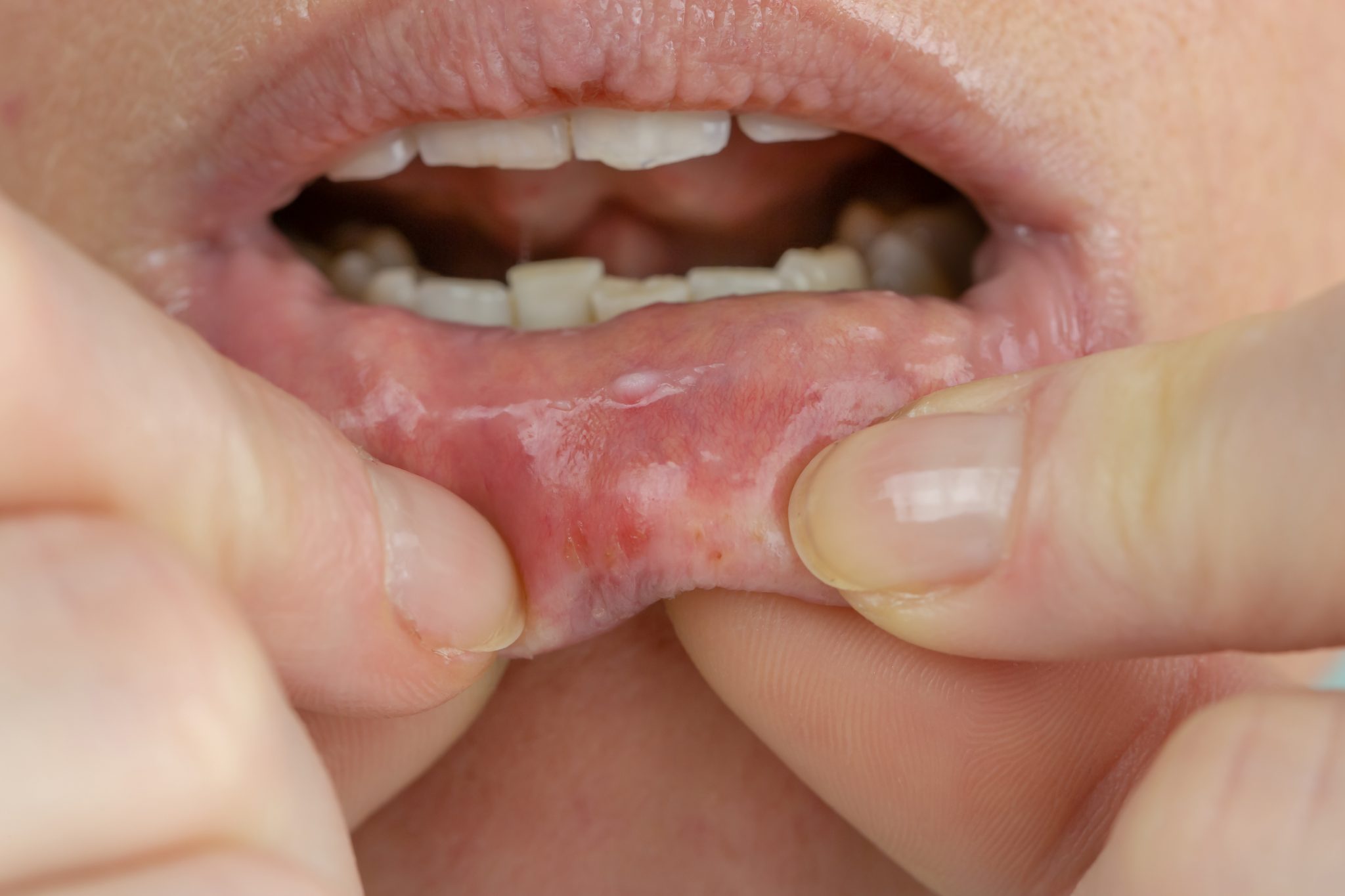Prosthetic stomatitis is a chronic inflammatory condition of the gums found in removable prostheses. It is a more common oral lesion in the toothless. It affects one-third of prosthetic wearers. The most prominent etiologic factors in the literature are trauma caused by poorly fitting prostheses, poor oral and prosthetic hygiene, and an infectious factor.

The trauma caused by an unstable prosthesis, and the continual wearing of the prosthesis also promotes this disease. There are also systemic factors that have an impact on the prevalence of prosthetic stomatitis, protein, vitamin A and B deficiency or iron deficiency. Also, it is more common in people with diabetes and in patients who receive immune system therapies.
Indices of the presence of prosthetic stomatitis
The clinical signs are localized or generalized inflammation, which may be accompanied by papillary hyperplasia (inflammation of the taste buds in the palate). The area of affected tissue may be more or less red. Prosthetic stomatitis is usually asymptomatic and is often detected by a health professional. That’s why it’s important to make regular visits to your denturologist.
Treatment
It is necessary to maintain a healthy palate without inflammation and to have beautiful oral mucosa. The treatment of prosthetic stomatitis has several components because of its complex and multifactorial etiology. Antifungal creams can be prescribed, but oral and prosthetic hygiene will first have to be improved to have good results: use antimicrobial agents to disinfect the prostheses. For example, mouthwashes containing alkaline peroxide or chlorhexidine gluconate should be used. Also, it will be necessary to check if there are too many pressure zones or occlusal contacts. Treatment with tissue conditioners can be done, followed by relining or making a new prosthesis.
Also, it allows you to familiarize yourself and adapt more quickly to the wearing of a denture. It gives you the ability to eat and chew properly, to talk easily and smile spontaneously, as you could before extraction. It’s not always easy to do all this when you have just removed your teeth or all the teeth! And not always easy to conceive that one has lost one’s teeth.


